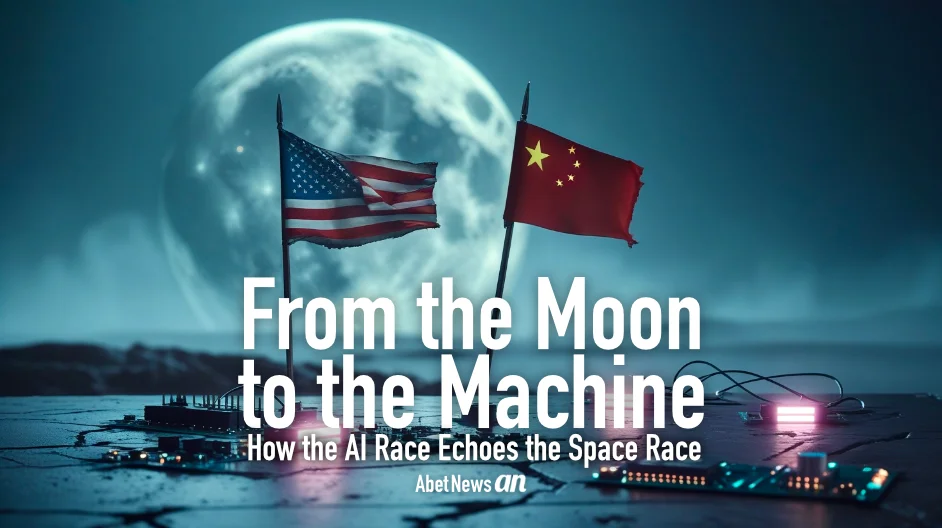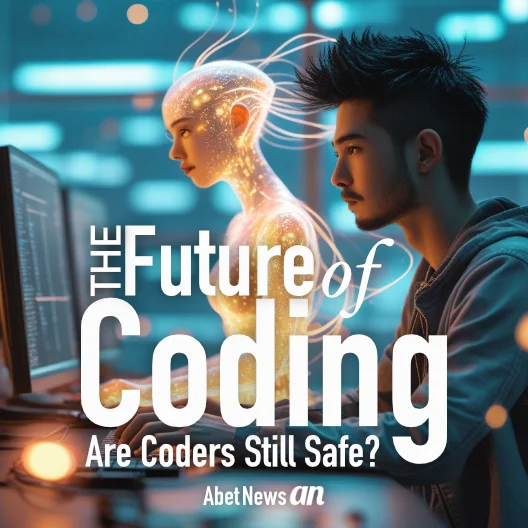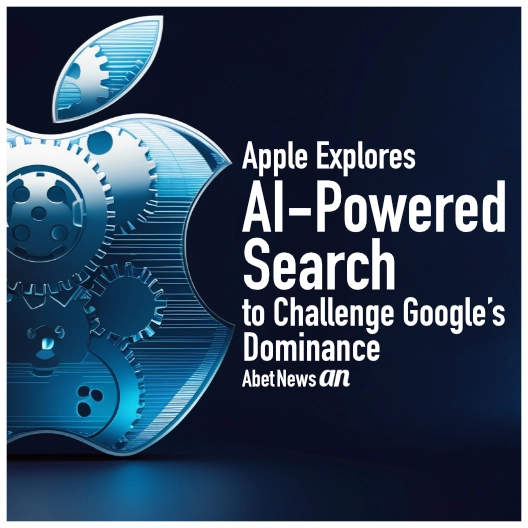From the Moon to the Machine

How the AI Race Echoes the Space Race
More than half a century after humanity first set foot on the moon, the world is witnessing another high-stakes competition—this time not in the skies, but in the realm of artificial intelligence. The rapid development and deployment of generative AI systems, especially by global superpowers like the United States and China, evoke striking parallels with the Cold War-era space race. But while the tools, goals, and risks have evolved, the underlying themes—technological supremacy, geopolitical influence, and the quest for global leadership—remain familiar.
The New Frontier: AI as the Moonshot of the 21st Century
In the 1960s, the race to the moon was a symbolic and strategic contest between the United States and the Soviet Union, showcasing not just scientific capability, but ideological strength. Today, the AI race—particularly in generative AI—is driven by similar ambitions: to establish dominance in a technology that promises to reshape everything from economics to national security.
Just as the moon race culminated in Neil Armstrong’s famous “giant leap for mankind,” the breakthroughs in AI—such as OpenAI’s ChatGPT and China’s DeepSeek—signal a profound transformation in how humans interact with machines, access information, and organize society.
ChatGPT vs. DeepSeek: A Tale of Two Titans
In this modern race, ChatGPT (developed by OpenAI and backed by Microsoft) and DeepSeek (developed in China by Beijing-based AI researchers) symbolize the current AI arms race between the U.S. and China.
ChatGPT:
• Launched in late 2022, ChatGPT rapidly became the world’s most widely recognized generative AI.
• Trained on massive datasets and continually updated, it integrates with Microsoft’s tools (e.g., Word, Excel, Bing) and has a large English-speaking user base.
• Its architecture and safety measures reflect Western ethical concerns—transparency, alignment, and reducing harmful outputs.
DeepSeek:
• A prominent Chinese large language model that has gained attention for its high performance in Chinese language tasks and its open-source development model.
• While less internationally known, it is part of China’s strategic push to reduce reliance on U.S.-led AI tools.
• DeepSeek is deeply integrated with Chinese tech ecosystems and aligns with state goals for digital sovereignty.
Despite similarities in technical ambition, the ecosystems behind ChatGPT and DeepSeek differ markedly. The U.S. model emphasizes openness, competition, and public-private collaboration. China’s model is more centralized, with government priorities shaping research trajectories and access policies.

AI Investment: Billions Fueling the Future
Both the U.S. and China are pouring vast resources into AI development, though their approaches differ. According to recent estimates, the U.S. led global private AI investment in 2023 with over $67 billion, largely driven by companies like OpenAI, Google DeepMind, and Anthropic. In contrast, China invested approximately $14–20 billion, focusing more heavily on state-backed initiatives, smart infrastructure, and domestic AI ecosystems. While the U.S. currently leads in foundational research and large-scale deployment, China is rapidly closing the gap, especially in areas like facial recognition, surveillance, and language-specific LLMs. This financial rivalry underscores the strategic value both nations place on AI leadership.
One thing is clear: just as the moon race defined the technological ambitions of the 20th century, the AI race will define the global order of the 21st.
Asamura





